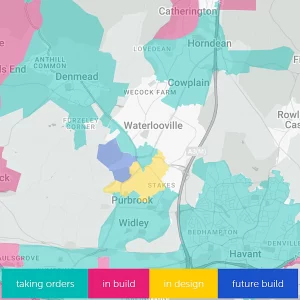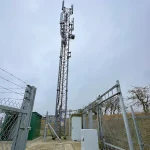Sponsored Links
802.11n Wi-Fi Wireless Networking Standard Finally Ratified by IEEE
Posted: 14th Sep, 2009 By: MarkJ
 The Institute of Electrical and Electronics Engineers (IEEE) and its 802.11n Task Group have finally, after seven long and repeatedly delayed years of development work, approved the standard for a new generation of wireless networking ( Wi-Fi LAN [WLAN] ) - 802.11n.
The Institute of Electrical and Electronics Engineers (IEEE) and its 802.11n Task Group have finally, after seven long and repeatedly delayed years of development work, approved the standard for a new generation of wireless networking ( Wi-Fi LAN [WLAN] ) - 802.11n. The "new" generation of Wi-Fi kit should deliver increased range and theoretical local networking speeds of up to 600Mbps, although 100Mbps+ is perhaps more realistic for real-world applications. By comparison the previous 802.11g standard was only rated to deliver speeds of up to 54Mbps (later came 100Mbps with multiple channels - MIMO).
Bruce Kraemer, Chair of the IEEE Wireless LAN Working Group, said:
“This was an extraordinarily wide-ranging technical challenge that required the sustained effort and concentration of a terrific variety of participants. When we started in 2002, many of the technologies addressed in 802.11n were university research topics and had not been implemented.
The performance improvements achieved via IEEE 802.11n stand to transform the WLAN user experience, and ratification of the amendment sets the stage for a new wave of application innovation and creation of new market opportunities.”
“This was an extraordinarily wide-ranging technical challenge that required the sustained effort and concentration of a terrific variety of participants. When we started in 2002, many of the technologies addressed in 802.11n were university research topics and had not been implemented.
The performance improvements achieved via IEEE 802.11n stand to transform the WLAN user experience, and ratification of the amendment sets the stage for a new wave of application innovation and creation of new market opportunities.”
However 802.11n has actually been around for the past two or three years in various DRAFT (e.g. DRAFT1.0, DRAFT 2.0) specification forms. Some of the most recently released DRAFT Wi-Fi adapters and broadband routers should benefit from a firmware update to the latest standard, although we suspect that earlier draft kit may not be so lucky.
Paul Nikolich, IEEE 802 LAN/MAN Standards Committee Chairman, said:
“Everyone involved in the 802.11n process—and no one more than Bruce Kraemer, whose strong leadership has been instrumental from the start—deserves congratulations because this is a key data communications milestone and a good example of the consensus building environment 802 provides for its participants.”
“Everyone involved in the 802.11n process—and no one more than Bruce Kraemer, whose strong leadership has been instrumental from the start—deserves congratulations because this is a key data communications milestone and a good example of the consensus building environment 802 provides for its participants.”
We would have to disagree with Nikolich, 802.11n has been one of the most poorly managed and delayed standardisation processes in the history of the entire 802.11 specification sheet. Its methods have caused confusion on consumer markets and divided hardware choices between different iterations of the same standard. Publication of the amendment is scheduled for mid-October.
Search ISP News
Search ISP Listings
Search ISP Reviews
Latest UK ISP News








Cheap BIG ISPs for 100Mbps+
150,000+ Customers | View More ISPs
Cheapest ISPs for 100Mbps+
Modest Availability | View More ISPs
Latest UK ISP News
Helpful ISP Guides and Tips
Sponsored Links
The Top 15 Category Tags
- FTTP (6798)
- BT (3881)
- Politics (3074)
- Business (2766)
- Openreach (2663)
- Building Digital UK (2512)
- Mobile Broadband (2475)
- FTTC (2142)
- Statistics (2127)
- 4G (2092)
- Virgin Media (2024)
- Ofcom Regulation (1779)
- 5G (1732)
- Fibre Optic (1604)
- Wireless Internet (1595)
Sponsored
Copyright © 1999 to Present - ISPreview.co.uk - All Rights Reserved - Terms , Privacy and Cookie Policy , Links , Website Rules































